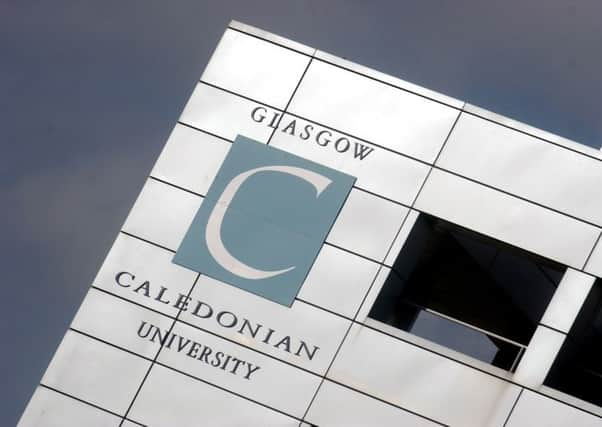One university is setting platinum standard


As a University for the Common Good, we recognise that we are uniquely placed to make a meaningful contribution to advancing the principles of sustainable development through our role as educators, researchers and owners and operators of large and complex estates.
We are responsible for educating tomorrow’s leaders and helping them become good global citizens, not only by providing access to world-class teaching and research facilities but by leading by example, and demonstrating how we’re embedding the principles of sustainable development into every aspect of our operations.
Advertisement
Hide AdAdvertisement
Hide AdWe have dedicated significant resources to achieving this and in April, we became the first university in Scotland to attain EcoCampus Platinum certification for our environmental practices. EcoCampus is the leading national Environmental Management System (EMS) for the higher and further education sectors.
Earlier this year, we were also rated “first class” in the 2015 People & Planet University League for our environmental and ethical performance and ranked second in Scotland and tenth out of 151 universities in the UK.
GCU began aligning its operations to support this commitment to sustainability in 2009, when we implemented the EcoCampus environmental management system and calculated our carbon footprint for the first time. The EMS provided a tool for evaluating our environmental performance, reducing impacts and ensuring compliance with environmental legislation. It also offered a training framework to highlight opportunities for improvement, a better understanding of environmental priorities and a way to engage staff.
Data and procedures from our EMS are used as part of under- and postgraduate modules in the School of Engineering and Built Environment. In turn, students in this school regularly contribute to the development and enhancement of our own procedures and systems.
Our first carbon footprint in 2009 allowed us to evaluate and understand the environmental impacts, on an equitable basis, associated with our operations and formulate a carbon management plan (CMP) to address the most significant - our use of energy.
GCU made a commitment to reduce its carbon footprint (relative to the 2008 baseline year) by 20 per cent by 2014 and our CMP identified a number of opportunities for achieving this target. As we set about implementing them, we noticed we were beginning to discuss the carbon implications of future projects. We realised we could change how we use and sourced energy and invested £4.9 million in developing a combined heat and power (CHP) system and district heating supply to supply all our heating and 30 per cent of our electricity needs.
In planning the CHP, we ensured it would also support our teaching programmes and have potential to link into Sustainable Glasgow’s planned district heating network (which was part of the city’s aspiration to reduce its own carbon emissions by 30 per cent in ten years). A review of our carbon emissions confirmed that not only had we reached our carbon target for 2014, but, thanks to our CHP, our carbon emissions were down by 30 per cent.
Whilst we’re delighted with this achievement, we’re mindful that we have scope to do more, in both emissions from sources we control, such as energy consumption, and sources we can only influence, like student and staff commuting. We are updating our CMP to map how we’ll deliver further reductions in emissions associated with how we use energy and, for commuting, we’re looking at how we can build on our experience piloting Cycling Scotland’s Cycle Friendly Campus Award (we were one of five Scottish institutions selected to take part), which has already delivered a 10-15 per cent increase in the number of students cycling to the university.
Advertisement
Hide AdAdvertisement
Hide AdOur focus is not only on reducing impacts but also enhancing benefits: we work with a number of community groups and neighbours to re-use furniture and other surplus items and are establishing a number of wildlife refuges across our campus. We are also working with NETpositive to quantify the environmental, social and economic benefits that our campus redevelopment project will have at local, regional and national levels.
• Douglas Little is director of estates at Glasgow Caledonian University. gcu.ac.uk
SEE ALSO